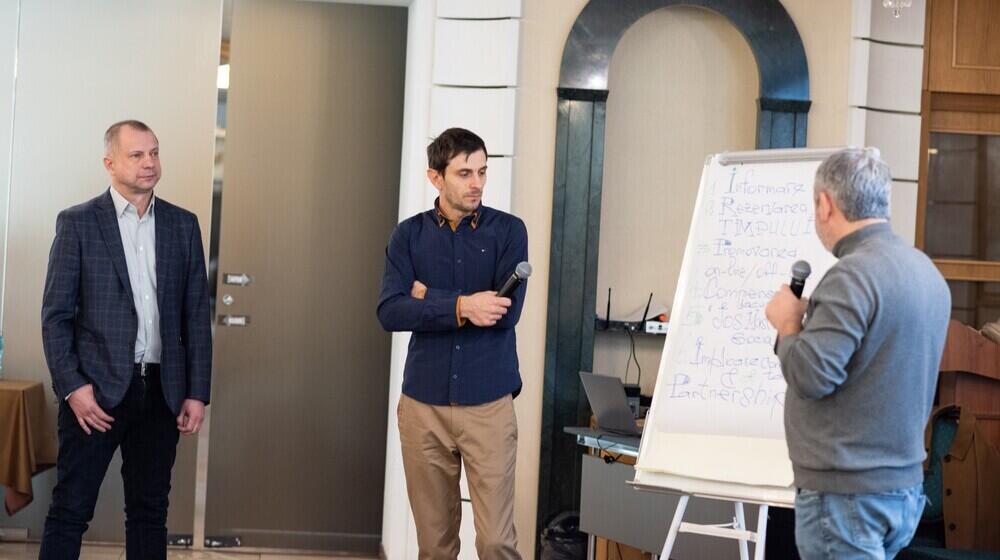Approximately 290 fathers and young men actively participate in Fathers' Clubs, where they have the opportunity to develop positive attitudes toward gender equality and active involvement in child-rearing. The activities are facilitated by 18 local trainers, both men and women, who have been trained and supported by the Child Rights Information and Documentation Center (CIDDC) and encouraged to lead Fathers' Clubs in their communities. These clubs operate within educational institutions or other organizations providing social services to the community.
The Fathers' Clubs represent a network of groups promoting active fatherhood and addressing discriminatory social norms against women. They provide a friendly space where fathers and young men can learn about family roles, child care, and building healthy relationships.
Between 2020 and 2024, a total of 28 Fathers' Clubs have been established across eight localities in the districts of Fălești, Strășeni, Drochia, Glodeni, Căușeni, Ialoveni, Ștefan Vodă, and in the municipality of Chișinău.
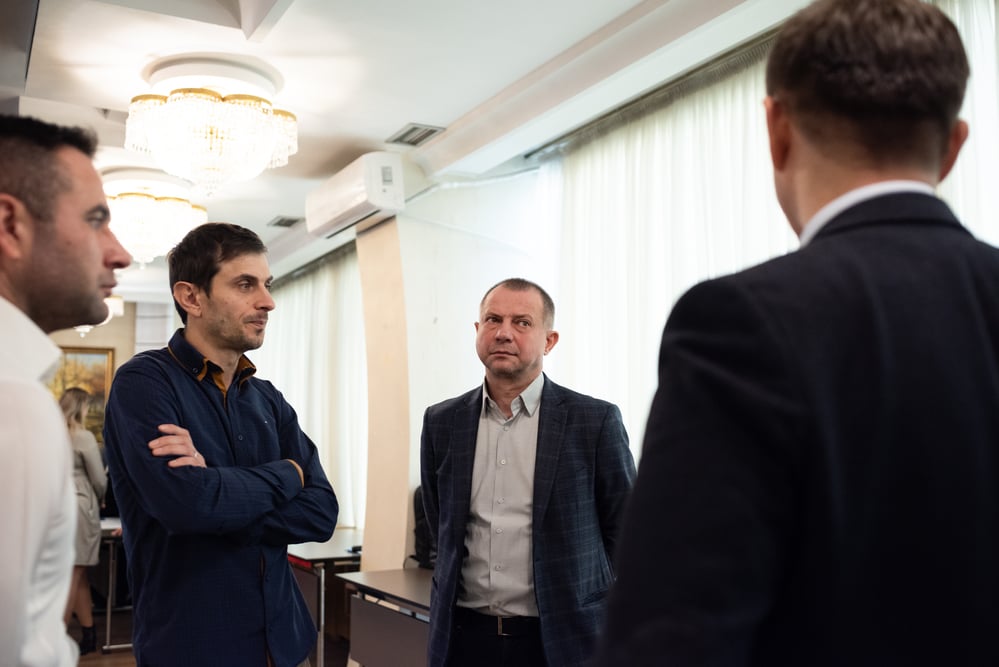
Through these activities, participants learn to understand the needs of children and their own responsibilities in meeting these needs within the family, at school, or in other contexts. This fosters a balanced, healthy, and educational family environment that has a significant impact on the upbringing and development of children, helping them reach their full potential. Fathers and young men are encouraged to adopt non-violent communication, build harmonious relationships based on respect and care, and support the emotional development of children.
A key component of the project is promoting the fair sharing of household responsibilities, thereby reducing the burden on women and contributing to equal rights and opportunities for both women and men. Additionally, various project activities have focused on supporting local authorities, as well as formal and non-formal educational institutions, in implementing Fathers’ Clubs at the local level. These interventions have helped enhance the skills of education professionals in reducing gender stereotypes, having a substantial impact on the involved communities.
“Relationships based on respect, equality, partnership, and non-violence create a protective and safe family environment for every child. Unfortunately, gender stereotypes limit women’s rights and shape cultural norms, particularly regarding family dynamics and gender roles. Transforming traditional perceptions of the roles of women and men in employment, family life, and childcare, combating gender-based violence, and promoting gender equality is our mission within this program. Through the Fathers’ Clubs, we aimed to raise awareness among current and future fathers about the benefits of being involved in raising and educating children and sharing family responsibilities. We also sought to ensure that authorities and professionals involved in the program recognize the long-term benefits of men’s involvement in fatherhood programs and adopt best practices in their daily work,” stated Arina Zîcu, Executive Director of CIDDC.
On December 19, over 40 participants, including implementation partners, local facilitators, fathers, youth center representatives, and local public authority (LPA) members, gathered to share experiences during the closing event of the project, "Transforming Gender Stereotypes: The Impact and Perspectives of the Fathers’ Club."
The event brought together high-ranking officials in human rights and education who discussed the essential role of men in fostering a balanced and inclusive family environment. They emphasized the importance of collaboration between public institutions and international actors to change social norms, promote equal access to opportunities, and support gender equity.
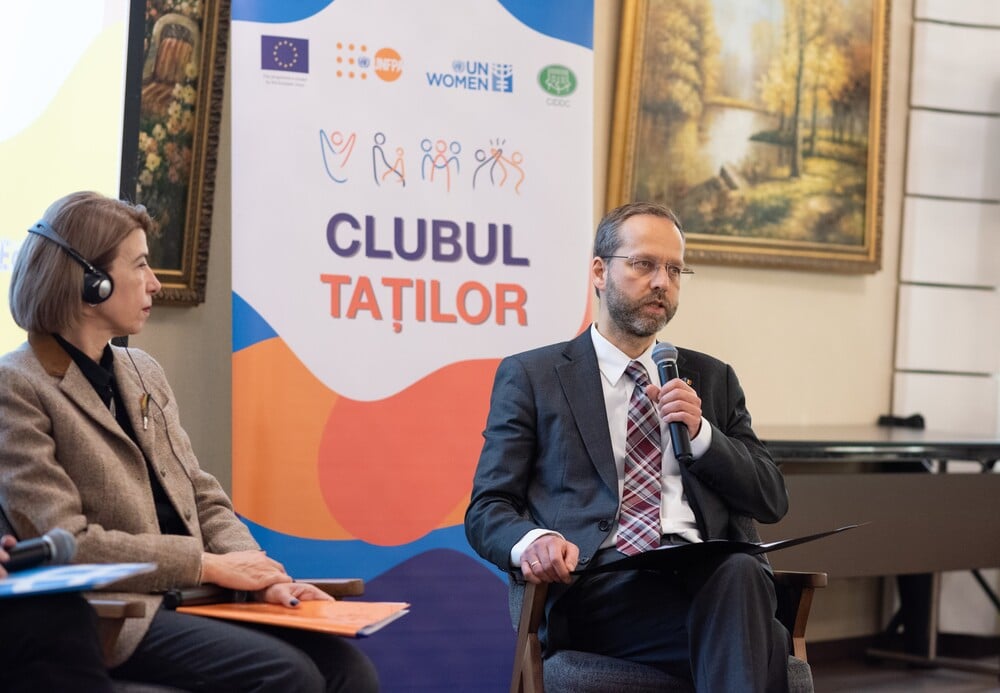
H.E. Jānis Mažeiks, Ambassador of the European Union to the Republic of Moldova, emphasized the importance of fathers' active involvement in raising children, highlighting the benefits for both families and society. He underscored the need to change social norms to support gender equality and progress in Moldova, especially in the context of EU accession:
"Change begins at home, through personal example. By empowering fathers, we empower families; by empowering families, we empower Moldova. Fathers must be recognized as equal partners in parenting. For Moldova, these changes become even more crucial as the country moves toward EU membership. Aligning with European values of equality and inclusion is a key requirement for accession. When fathers take a more active role in raising their children, the benefits extend far beyond the boundaries of their own families."
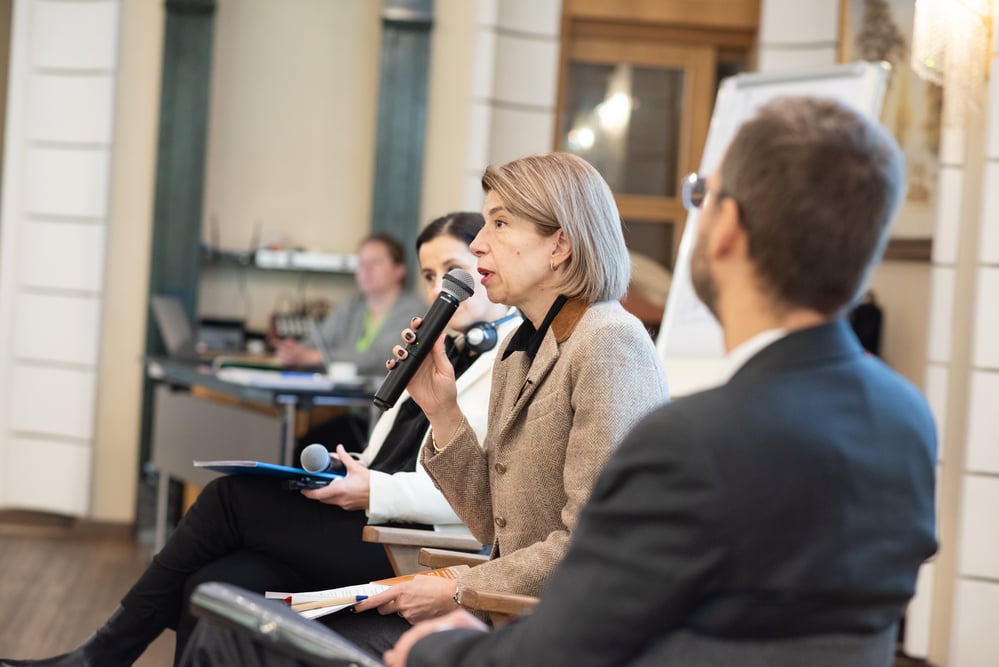
Dr. Karina A. Nersesyan, UNFPA Moldova Country Representative, shared the vision and commitment of UNFPA Moldova regarding changing social norms and promoting gender equality:
"We need to change social norms together with men. The work we do alongside our partners – the EU, UN Women, and CIDDC – is creating change and engaging more aspects of society. Thanks to EU support, we are able to fund this vision of transforming Moldova into an inclusive place that offers equal opportunities for everyone, a place where boys and girls grow up to become members of a society that respects one another."
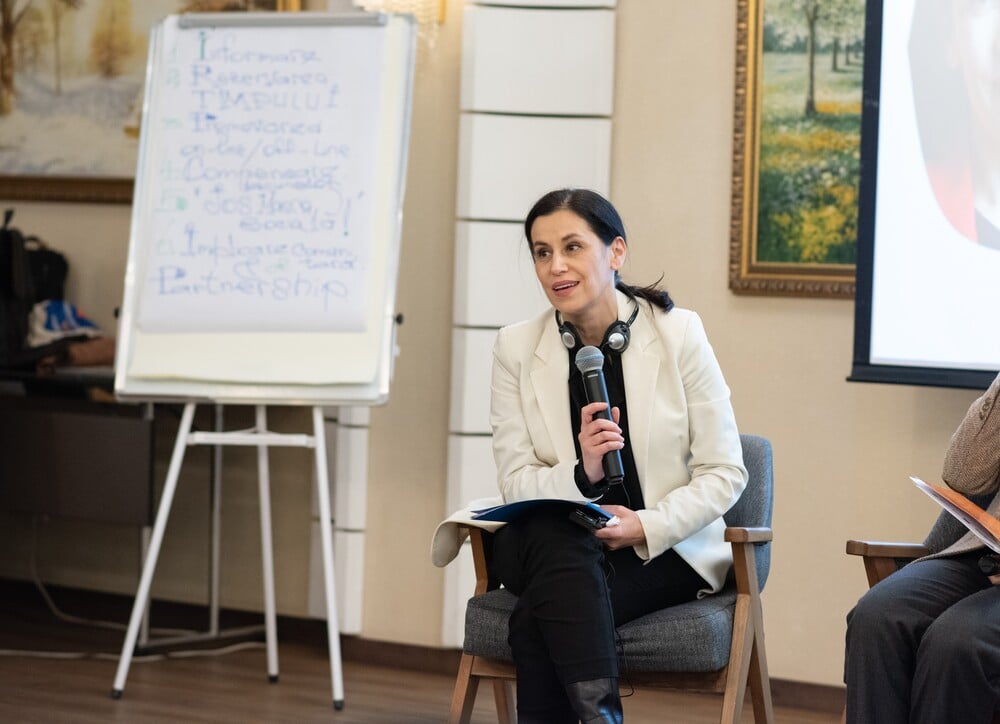
Dr. Dominika Stojanoska, UN Women Moldova Country Representative, emphasized the importance of shared family responsibilities and equal access to opportunities for all:
"Through this project, we contribute to building a better society where girls and boys enjoy equal rights and opportunities. We are proud of the progress achieved. In this phase of the project, we are creating connections between various initiatives and taking significant steps toward a more equitable future."
Interactive sessions, presentations of best practices, and small group discussions were key elements of the event, promoting open and participatory dialogue. The conclusions and proposals generated will guide the initiative's national expansion, strengthening its impact.
"Fathers' Clubs are an effective tool in preventing gender-based violence, and we aim to integrate this model into prevention programs starting in 2025. Children must grow up in a healthy environment, and our agency is open to collaboration in developing effective policies because your experience is valuable to us. Together, we can create change," emphasized Viorica Țîmbalari, Head of the National Agency for the Prevention and Combating of Violence Against Women and Domestic Violence.
"We want to expand the Fathers' Clubs to every school, involving fathers, young people, and adolescents. We aim to inform all teaching staff at the district level about the activities of the Clubs and incorporate this initiative into our activity plans," declared Eugenia Macarenco, Specialist at the Directorate of Education, Culture, Youth, Sports, and Tourism in Căușeni.
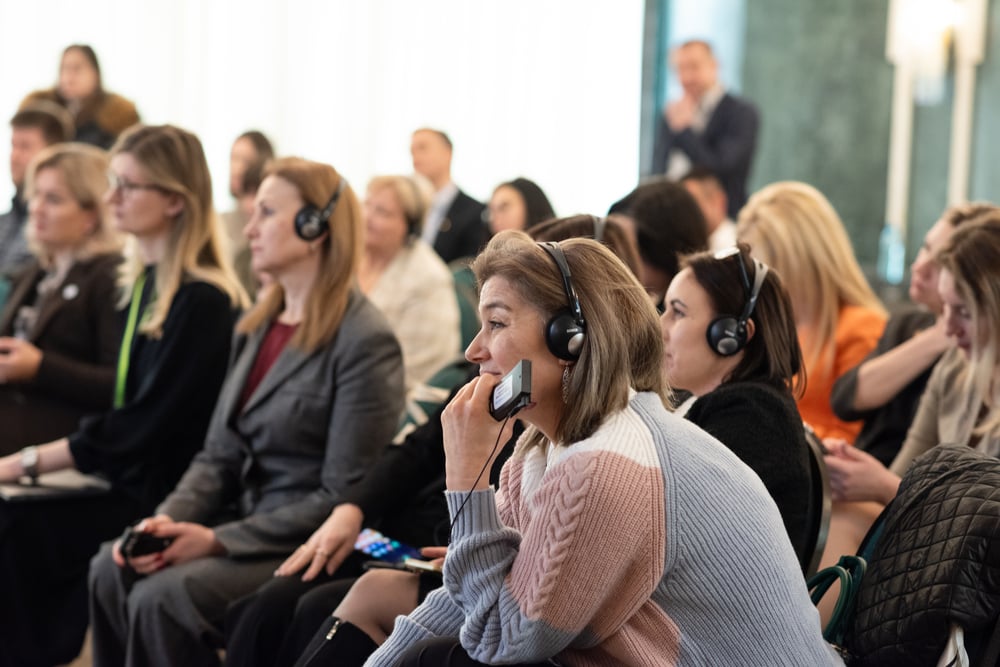
The closing event provided a space for reflection on the results achieved and the lessons learned. Participants shared valuable experiences, highlighting the positive changes brought to family and community life.
"The time I spend with my daughters has become quality time. The Fathers' Club taught me to be creative in communicating with my children. Through interactive games, I built a relationship based on responsibility, respect, and care. Such Fathers' Clubs should exist in every household," said Gheorghe Rogate from the Cecefel Fathers' Club in Chișinău.
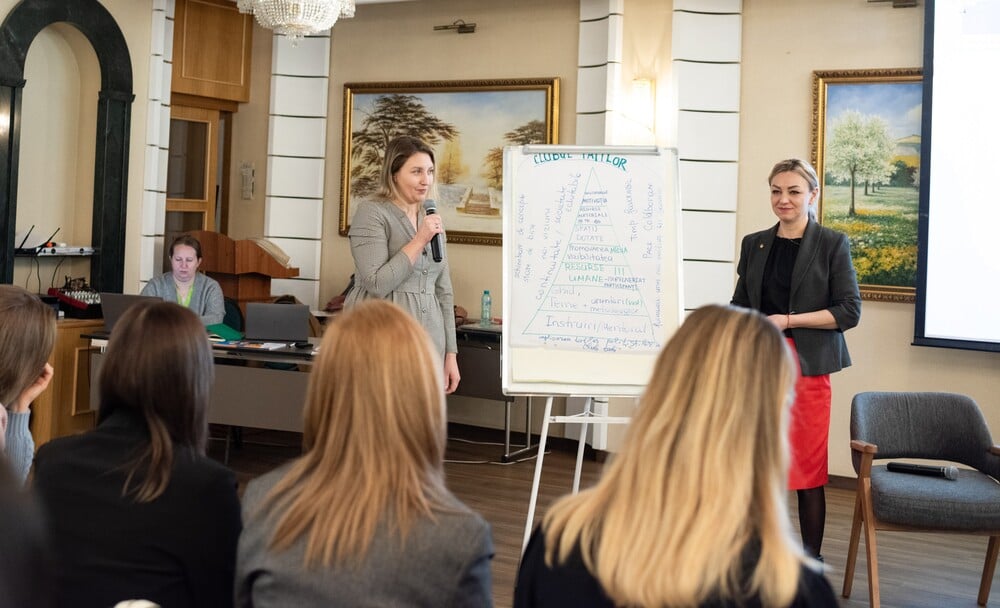
"Fathers' Clubs are a societal necessity. Initially, it was new for us to work with fathers because we, too, come from times shaped by stereotypes and had to work on our own perceptions with the support of CIDDC. Now, we see a balance of interest in raising and educating children from both parents. Fathers have emotions, they are caring, and they want to bring about change in their relationships with their children and partners, but they need support and encouragement from professionals. For us, the Fathers' Club doesn't stop here. We are committed to continuing the Clubs' activities because they inspire other fathers and young men to get involved," said Eugenia Bordeianu, facilitator of the Fathers' Club in Costești, Ialoveni.
In the coming period, CIDDC will launch the online campaign "Together Against Violence and Gender Discrimination," aimed at changing social perceptions of traditional gender roles and promoting active fatherhood models. The campaign will feature educational and visibility materials such as articles, vox-style interviews, images, and awareness posts showcasing the experiences of participants from the Fathers' Clubs. The campaign will be shared on CIDDC’s Facebook, Instagram, and website platforms.
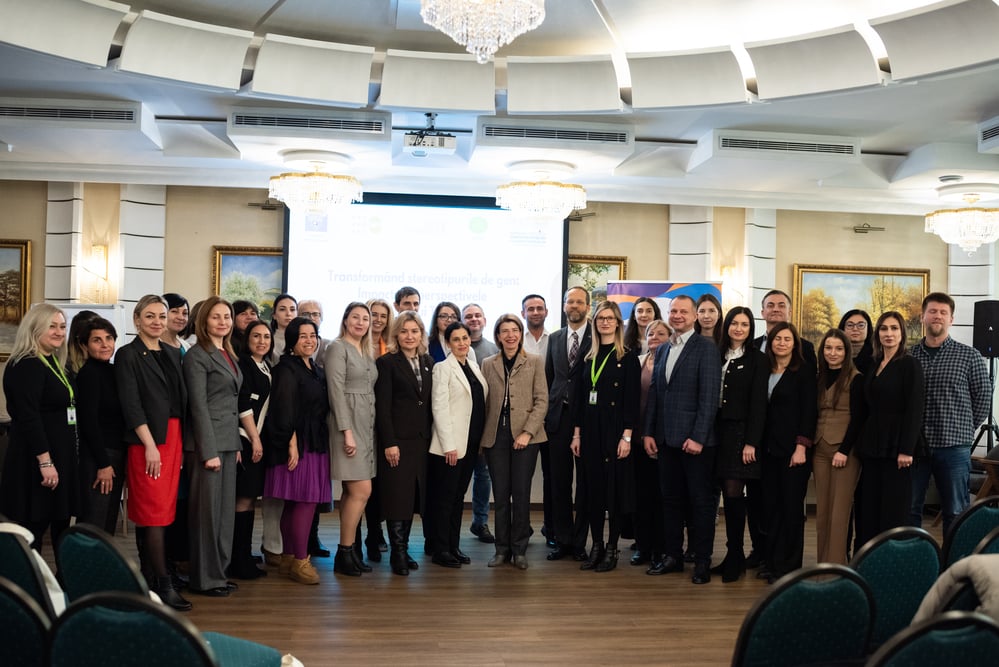
The “Fathers' Club” project, implemented between April and December 2024, is part of the regional program “EU4Gender Equality: Together Against Gender Stereotypes and Gender-Based Violence” (Phase II), funded by the European Union and jointly implemented by UNFPA and UN Women. The primary goal of the project is to promote positive change in gender stereotypes and encourage fathers' active involvement in family life.

